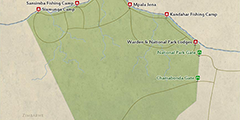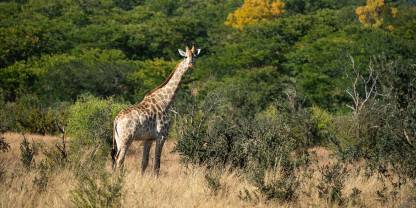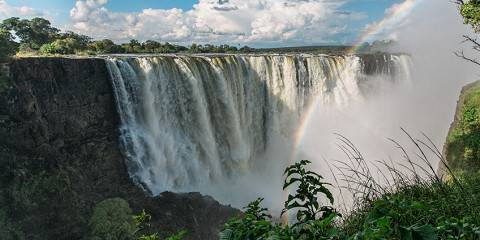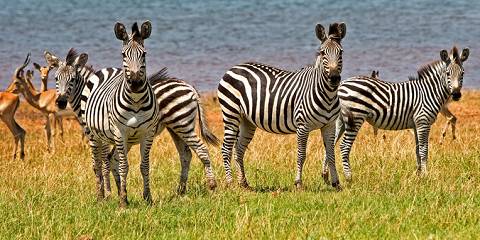Named after the atmospheric tropical waterway that flows along its northern boundary, Zambezi National Park supports good numbers of elephant, buffalo, giraffe, hippo and other wildlife. Because it is near Victoria Falls, the park is most frequently visited on full- or half-day safaris, but it also boasts a great choice of classy riverside accommodations offering a full-on bush experience.

-
Best Time To Go
- June to October (Best time for wildlife viewing)
-
High Season
- June to October (The park gets busy during weekends, regardless of the season)
-
Size
- 560km² / 216mi²
-
Altitude
-
891-1,056m /2,923-3,465ft
 View Photos
View Photos
 View Photos
+19
Photos
View Photos
+19
Photos
 Open Map
Open Map
Pros & Cons
- Beautiful scenery along the Zambezi River
- Picnic spots available
- Great half-day or day trip from Victoria Falls
- Elephants and hippos are common close to the river
- Not crowded despite being close to Victoria Falls
- Excellent birding destination
- Only three of the Big Five are regularly seen
- Travel by 4WD vehicle is essential
Wildlife
Although four of the Big Five are present, only elephant, buffalo and, to a lesser extent, lion are likely to be seen. There are no rhinos, and leopards tend to be shy and skittish. Neither cheetah nor African wild dog is resident but both pass through occasionally. The river teems with crocodiles and hippos. Common antelope include greater kudu, impala and waterbuck.
More about Zambezi NP’s wildlifeScenery
The Scenic Zambezi River is lined with jungle-like and studded with small islands. It can be explored along Zambezi Drive, which runs the length of the park from east to west for roughly 50km/30mi. The riverine forest hosts some amazing trees including apple-rings, figs, ebonies and baobabs. Elsewhere, a cover of mopane and is interrupted by grassy such as Chamabonda Vlei.
Activities
Most follow scenic Zambezi Drive, where elephants are plentiful. A more remote and southerly area for drives is Chamabonda Vlei, where a pair of wildlife-viewing overlooks artificially pumped . Most lodges in the park run and cruises. Some also have canoes. Lodges inside the park also generally offer day trips to Victoria Falls and can arrange a wide array of activities there.
Weather & Climate
As with the rest of the low-lying Zambezi Valley, the climate is warm to hot. Temperatures in the Dry season (April to October) bounce from morning cool to afternoon warmth and back again. The Wet season (November to March) is significantly hotter. Mornings are usually clear, but afternoon showers typically fall once every three days over November and March and once every two days from December to February.
More about the weather and climateBest Time To Visit
The broad Zambezi River draws many thirsty animals to its banks in the Dry season (April to October), but you’ll see the most animals from June to October. Victoria Falls is at its most thunderous from February to June, which is when the flow of the Zambezi River is at its highest. The Wet season (November to March) sees fewer visitors and low-season rates might be available.
More about the best time to visit



